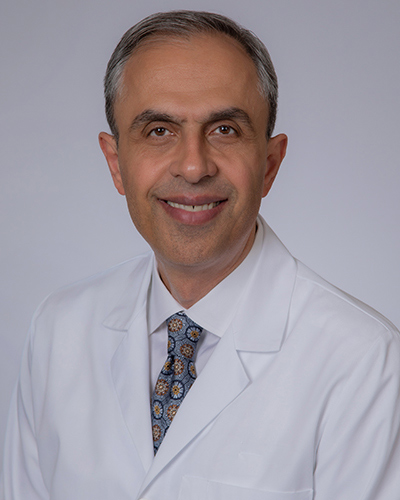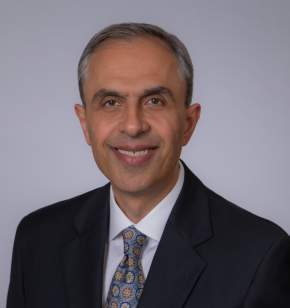Brain Tumors in Children


Pediatric brain tumors are growths of abnormal cells in a child’s brain or its surrounding tissues and structures. Unfortunately, they are the most common type of solid tumor in children, with around 5,000 children diagnosed yearly.
As children’s brains are still developing, treating pediatric brain tumors requires heightened attention and care. It’s also different from treating adult brain tumors and cancers, so it’s crucial to seek the expertise of pediatric neurologists and brain tumor neurosurgeons. Getting a second opinion from physicians specializing in the same field can also help parents ensure they’re on the right track with their child’s treatment plan.
Types of Brain Tumors in Children
Different types of brain tumors can affect children. Some are noncancerous and slow-growing (benign), while some can be aggressive and quick to spread to other areas of the brain or central nervous system (malignant). Let’s delve into some of them below.
Astrocytoma
The most common type of glioma, astrocytomas, account for about half of all childhood brain tumors. They can be non cancerous, slow-growing tumors, often affecting children ages 5 to 8 and generally developing from astrocytes in the cerebrum.
Treatment for astrocytomas depends on how quickly the tumor is growing. Thankfully, 80% of astrocytomas in children are low-grade.
Why should you have your surgery with Dr. Cohen?
Dr. Cohen
- 7,500+ specialized surgeries performed by your chosen surgeon
- More personalized care
- Extensive experience = higher success rate and quicker recovery times
Major Health Centers
- No control over choosing the surgeon caring for you
- One-size-fits-all care
- Less specialization
For more reasons, please click here.
Medulloblastoma
Medulloblastoma is a malignant brain tumor accounting for around 15% of pediatric brain tumors. It usually develops in the cerebellum and can metastasize along the spinal cord, making surgery and other treatments such as radiation necessary.
This type of brain tumor in children occurs primarily before age 10, affecting boys more frequently than girls.
Ependymoma
Another kind of glioma, ependymomas, can be benign or malignant. They typically begin in the ependymal cells lining the ventricles where cerebrospinal fluid flows. Surgery and radiation therapy are required in most cases as they often grow in the brain or any part of the spinal cord.
Optic Nerve Glioma
Also called optic pathway glioma, this slow-growing brain tumor develops in or around the optic nerve. As this nerve connects the eye to the brain, tumors that progress can press on the nerve and eventually cause vision loss.
Choroid Plexus Tumor
The choroid plexus is a structure in the brain responsible for producing cerebrospinal fluid and lining the fluid-filled cavities of the brain. Tumors arising from the choroid plexus can result in a CSF buildup, causing symptoms like headaches, nausea, vomiting, and irritability.
Brainstem Glioma
A type of central nervous system tumor, a brainstem glioma can be challenging to treat because of its location. Most masses in this type of brain tumor, particularly the diffuse intrinsic pontine glioma, can be difficult to remove surgically because they grow in the middle of the brainstem. It’s also important to note that the tumor may grow significantly before causing symptoms.
Brain Tumor Symptoms in Children
As the skull only has enough room for the brain, tumors that grow and expand increase pressure inside it. This dangerous condition is called increased intracranial pressure (ICP), and it can cause symptoms of varying severity.
Headaches are a common manifestation of increased ICP. And while it is rare for children with headaches to have a tumor, here are patterns that may occur due to masses in the brain:
- Headaches that tend to be worse at night or early in the morning
- Headaches that worsen with exercise or a change in position
- Headaches with at least one other symptom, like confusion or vomiting
Other possible symptoms include:
- Macrocephaly (especially in infants)
- Unexplained frequent vomiting
- Lethargy and drowsiness
- Weakness or numbness
- Seizures
- Problems with movement and balance (for brain tumors located in the cerebellum)
- Unexpected vision problems (for tumors affecting the optic pathway)
- Speech difficulty
- Irritability
In some cases, only mental changes like the following can be noticeable:
- Inability to concentrate
- Problems with reasoning
- Changes in personality and behavior
- Memory loss
Causes and Risk Factors
In most cases of brain tumors in children, the exact cause is unknown. Since these masses typically start in the brain itself or the tissues close to it, they are likely caused by damage or mutations to the DNA in the cells. These mutations accelerate cell division rates and allow cells to continue to grow.
However, a family history of brain tumors is known to increase some children's risk of brain tumors. Those with genetic conditions like the following are also likely to develop tumors in the central nervous system:
- Neurofibromatosis
- Von Hippel-Lindau disease
- Li-Fraumeni syndrome
Diagnosing Brain Tumors in Children
If your child is experiencing brain tumor symptoms, it’s crucial to seek medical attention from a pediatrician or pediatric neurologist as soon as possible.
An MRI scan is usually required to diagnose the problem. If a mass is detected, a neurosurgical consultation is the next step. Your neurosurgeon will work with you to develop the best treatment plan for your child. They may involve other specialists, such as pediatric oncologists, epileptologists, radiation oncologists, and other healthcare professionals.
Your neurosurgery team will need to know the following to develop the most appropriate treatment plan for your child:
- Tumor Location: With CT or MRI scans, your neurosurgeon can locate the mass and determine its accessibility. Because of the vital structures in the brain, some areas may not be appropriate for surgery.
- Brain Tumor Type: Determining this enables doctors to anticipate how the mass will likely grow.
- Brain Tumor Grade: Understanding how aggressive the tumor cells are is essential in determining the appropriate treatment plan and your child’s prognosis.
Treatment Options
As mentioned, the treatment your child will receive will ultimately depend on factors like tumor location, type, and grade. Your neurosurgery team will also consider your child’s overall health when determining the most appropriate treatment option.
To give you an idea, here are the options available to cure the tumor, relieve symptoms or improve a patient’s comfort or brain function.
Surgery
Surgery may be the only intervention necessary to remove the mass completely in low-grade or slow-growing tumors. However, in cases where the tumor is in a sensitive location, surgery may be performed to help relieve ICP and its symptoms.
Surgery is also performed in biopsies to be able to take and examine a brain tumor sample. This helps doctors establish the most accurate diagnosis and treatment plan.
Radiation Therapy
Tumors in brainstem gliomas are usually located deep in the brain, making surgery impossible. These types of brain tumors in children are typically treated with radiation therapy instead. However, it is also used as a further treatment after surgery for some tumors like medulloblastoma to keep the disease from spreading to the brain and spine.
As the name suggests, it involves focusing high-energy radiation on the tumor tissue to kill brain cancer cells or control the growth of some tumor types.
Chemotherapy
Chemotherapy is often used with surgery and radiation therapy to treat brain tumors. It can be administered in various ways, such as the following:
- Orally (as pills taken by mouth)
- Intravenously (into a vein in the arm)
- Injected directly into the cerebrospinal fluid (CSF)
- Injected into the cavity where the tumor used to be
How a Second Opinion Can Help Ensure the Best Care For Your Child
As a parent, you want the best possible treatment for your child. Seeking a second opinion from a specialized neurosurgeon can offer valuable insights and perspectives you may have overlooked that may uncover alternative treatments you can explore.
The complex nature of pediatric brain cancer requires a comprehensive evaluation, and a second opinion gives you the opportunity to confirm the diagnosis and treatment plan you receive. In the end, this helps you find the most tailored and effective therapy to help your little one overcome this condition.
Let Dr. Aaron Cohen-Gadol, MD help you gain the knowledge and confidence you need to make informed decisions for your child. With his experience in diagnosing and treating various brain tumors, he has the expertise to offer the second opinion you need to advance your care. Complete this form to request a second opinion today.











